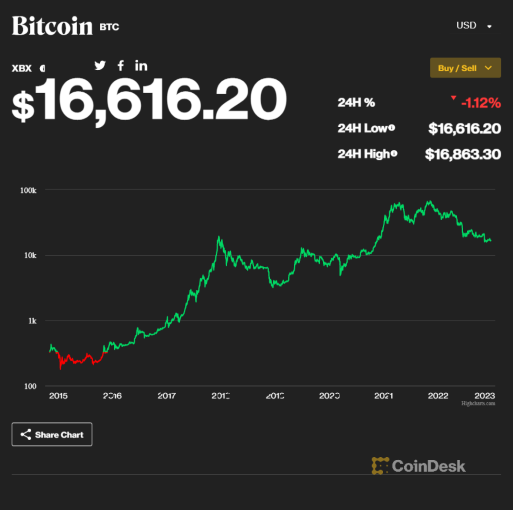The Valuation Paradox
The puzzle in economic theory is why private cryptocurrencies have any value at all.
— The seven deadly paradoxes of cryptocurrency, Bank Underground
There was this one question I mulled about from when I first became aware of Bitcoin and other crypto currencies, and that was how the price for Bitcoin or any other crypto currency was set. Or, to be precise, why a price was evolving. As with most securities, commodities or other goods&services, my simplistic view was based on a supply and demand approach: basically, there is an order book on an open market (exchange), and if there is a seller willing to sell at a price of \(x\) or higher, and a buyer willing to pay not more than \(y\), and \(y > x\), well, done deal (we are ignoring market makers, spread and other mechanics to determine the exact price here).
The supply side of Bitcoin started when the network was created in 2009 and the first 50 coins were minted. The first transactions took place between early adopters, and can be considered proof-of-concept transactions. Among the first retail transactions, an exchange of 10,000 BTC for 2 pizzas is mentioned in 2010. However, this still seemed like a more experimental purchase, and the exchange rate USD/BTC was less than one cent. From 2011 onwards, the price rose above 1 USD and continued to climb. With the advent of cryptocurrency exchanges, such as Coinbase in 2012, or Mt. Gox, which went bankrupt in 2014, the above mentioned simplistic model of supply and demand for conversion of USD in BTC or vice versa, would hold for Bitcoin. Which brings us back to the initial question, which we can now pose as why would anyone sell USD and buy Bitcoin, and how would a BTC buyer arrive at the price he was willing to pay in USD"?

Now, for traditional securities or currencies1, there are different models, theories and mechanics for pricing. In my, again very simplistic, view, the price of a currency depends on factors such as the ability to raise taxes in that currency, the general volume or appetite of investments in the corresponding country or region, and the demand for supply of goods and services which need to be purchased with that currency. For securities, there exists an intrinsic value, which might depend on future cashflows of an enterprise, or the value of its assets. Of course, how to determine this value, and how precise the estimate will be is another problem, however the point I want to make here is that this intrinsic value usually is larger than zero.
For crypto currencies, which were not widely adopted as a means of payment2, and a common use case was the purchase of illegal goods on the darknet marketplace Silk Road, it is not so clear what the intrinsic value could be, or how demand for crypto currencies would be created.
I was happy to come across the article cited and linked at the beginning of this post, in which professionals from the industry lay down in clear terms of the valuation paradox what I could not quite put my finger on. Also, I would like to point out, the intrinsic value of a crypto currency is not its mining cost, as is again made very clear in the linked article.
Further, if the value of a crypto currency depends mostly (only?) on the future value of itself, this is, in its most favorable designation, a bubble, but to me it looks more like a Ponzi scheme. I like the term magic beans, which Matt Levine has used in a number of issues of his excellent Money Stuff newsletter. To be fair, though, I am not sure whether he would apply that to BTC or ETH. He has specifically used it in conjunction with tokens such as FTT, Serum and Luna, which obviously draw their sole value from the promise that their value will increase over time (again, a simplified statement, I really recommend subscribing to Money Stuff for a better, precise, and certainly more entertaining explanation).
-
I am not sure whether it is yet fully determined if Bitcoin and other crypto currencies are considered to be a medium of exchange, such as a currency, or a store of value, such as a bond or precious metal (gold). I am probably very imprecise here. ↩︎
-
there are (very) few (two?) countries which have adopted Bitcoin as legal tender (El Salvador and the Central African Republic). ↩︎